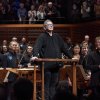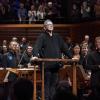
Michael Tilson Thomas’s 80th birthday concert at Davies Symphony Hall on Saturday, April 26, began with the entire audience and the San Francisco Symphony and Chorus greeting the conductor by standing and waving blue kerchiefs emblazoned with an MTT quote, as if everyone were at a sports event. But if that, the proclamation by Mayor Daniel Lurie, and the blue balloon drop at the evening’s end were enough to mark the special occasion, the concert itself was far more meaningful.
It was the people taking part who made the evening emotional. Helping out and conducting sections of the program were Teddy Abrams, the MTT mentee, now music director of the Louisville Orchestra, and Edwin Outwater, music director at the San Francisco Conservatory of Music, whom MTT appointed to the conducting staff of the SF Symphony in 2001.
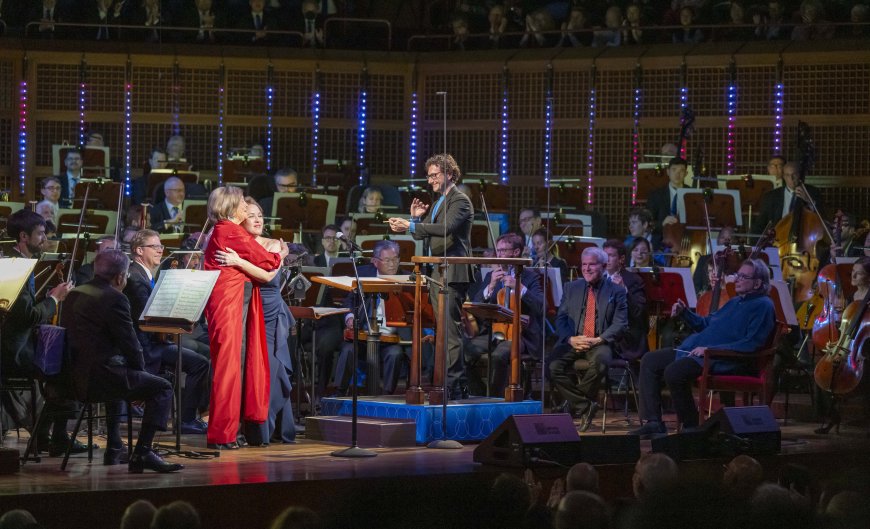
The vocal soloists were all longtime collaborators: Frederica von Stade, who has performed with the conductor since the 1970s; Sasha Cooke, who was a Shenson Young Artist at the SF Symphony in 2010 and premiered Tilson Thomas’s Meditations on Rilke in 2019 (a performance recorded for SFS Media); Ben Jones, whom the conductor plucked from the SFS Chorus and who took the lead role in the orchestra’s 2018 production of Leonard Bernstein’s Candide; and Jessica Vosk, who got her first big break in another MTT-led Bernstein production at Davies, West Side Story.
And omnipresent, though not performing, was the maestro’s husband, Joshua Robison, who sat next to him throughout the evening and helped plan the program. As the concert reached its conclusion with the song “Some Other Time” from Bernstein’s On the Town (which was memorably recorded by MTT and the London Symphony Orchestra in 1992 for Deutsche Grammophon, with von Stade in a lead role), the conductor choked up for a moment. In the evening’s most touching moment, Robison leaned over and clasped his hand.
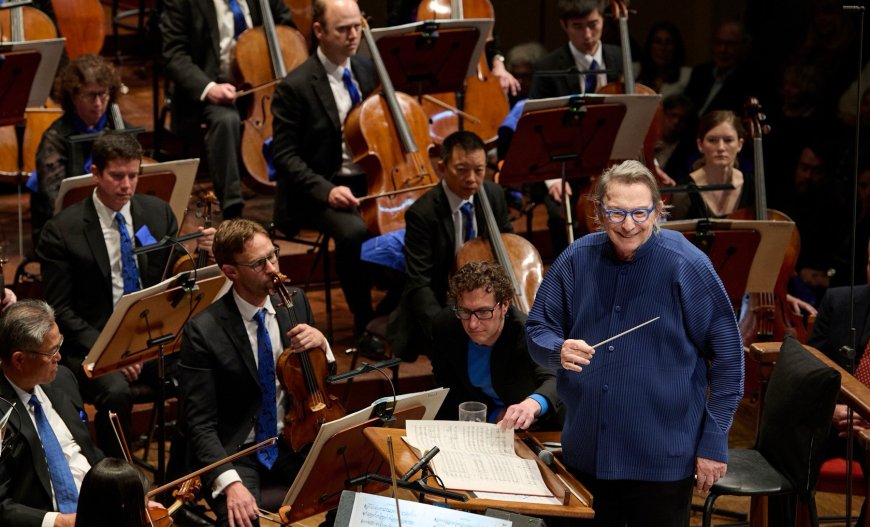
MTT did make it to the podium, and history will record his last performances as Benjamin Britten’s Variations and Fugue on a Theme of Purcell and Ottorino Respighi’s Roman Festivals. No doubt these works were chosen because of their big scoring — the whole orchestra got to be onstage to play farewell, including nine percussionists, a mandolinist, and a saxophonist. There was not an inch of extra space. Beset by illness though he is, the conductor was alert and engaged. Above all, what the performances showed was the rapport he shares with the players of the SF Symphony, built up over his 25-year tenure as music director. He didn’t have to do anything overt to draw great music from them.
Abrams took the baton for the Overture to Joseph Rumshinsky’s Khantshe in Amerike, which MTT arranged and conducted for his 2005 Carnegie Hall production The Thomashefskys: Music and Memories of a Life in the Yiddish Theater. Outwater led the finale from Bernstein’s Chichester Psalms, outstandingly sung by the Chorus, prepared by Director Jenny Wong.
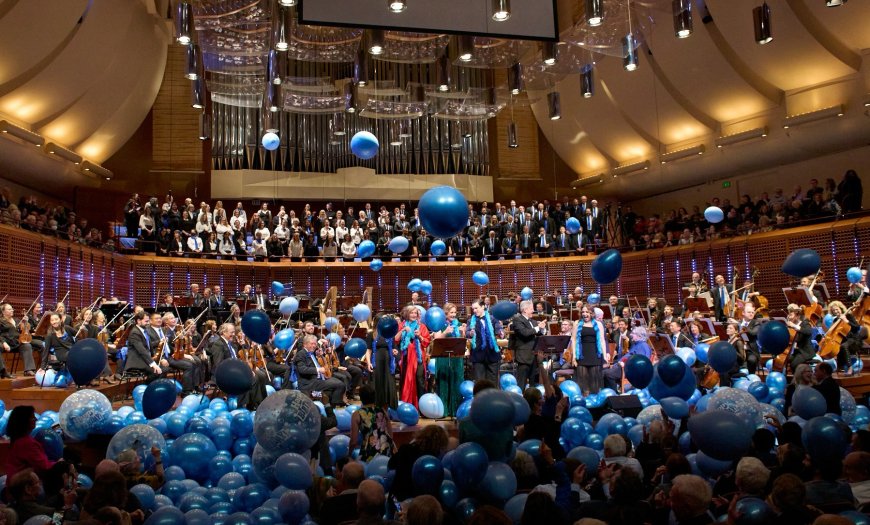
The heart of the concert was “Songs for MTT,” which included four numbers written by the evening’s honoree and newly orchestrated by Bruce Coughlin and Larry Moore. These ranged from “Immer wieder” from Meditations on Rilke, which Cooke sang with absolute sincerity and emotion, to the bluesy “Sentimental Again,” inspired by Sarah Vaughan and given a full-throated, all-in performance by Vosk. These songs show a composer highly influenced by his family’s musical theater heritage and, of course, by Bernstein. “Sentimental Again” was the vehicle for another, wordless tribute, this one from principal trumpet Mark Inouye, also a jazz player in his spare time, who contributed a searingly soulful improvised solo.
It’s impossible to sum up a lifetime’s worth of music in a single evening, especially because MTT has made so many connections and lifted hearts in so many places. But for this orchestra, he is the still-living embodiment of a noble artistic legacy that invited everyone in and didn’t stand on ceremony but provided the city with some of its most extraordinary musical events, from the American Mavericks festivals to otherworldly performances of everything from Gustav Mahler symphonies to American popular music. It’s a legacy that is ongoing and needs to be maintained if we are truly to honor the conductor.


